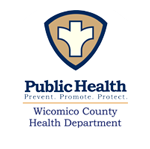West Nile Virus Detected In Maryland Resident Maryland Residents Reminded to Take Basic Steps to Reduce Risk
Office of Communications
Brittany Fowler
410-767-1368
Nikki Laska
410-767-3536
FOR IMMEDIATE RELEASE:
Maryland Residents Reminded to Take Basic Steps to Reduce Risk
- Avoiding areas of high mosquito activity
- Wearing long pants, long-sleeved shirts, and hats, when concerned about mosquitoes
- Using an Environmental Protection Agency (EPA)-registered insect repellent according to package directions
Most individuals infected with WNV will not have any symptoms. Those who do develop illness usually will have any combination of fever, headache, body aches, skin rash, and swollen lymph glands. These symptoms generally appear two to 14 days following the bite of an infected mosquito. Fewer than one percent of individuals exposed to the virus will develop more severe infections, with symptoms such as headache, high fever, neck stiffness, stupor, disorientation, coma, tremors, convulsions, muscle weakness, and paralysis.
In rare instances, WNV can be fatal. Individuals older than 60 have the greatest risk of developing severe disease. Individuals with compromised immune systems also may be at high risk of WNV infection.Marylanders are urged to monitor their own yards and gardens for standing water that can serve as a breeding ground for mosquitoes. Small amounts of water in a discarded can or container will support dozens of mosquitoes. To eliminate mosquito-breeding areas:
- Clean rain gutters to allow water to flow freely
- Empty or screen corrugated drain pipes
- Remove old tires or drill drainage holes in tires used as playground equipment
- Turn over wading pools, wheelbarrows, wagons, and carts when not in use
- Flush water from the bottom of plant holders twice a week
- Replace water in birdbaths at least twice a week
- Turn garbage can lids upside down and make sure trash receptacles are empty of water
- Fix dripping faucets
- Aerate ornamental pools and water gardens or stock with fish and use a circulating filter system
The Maryland Department of Agriculture (MDA) will conduct larvicidal and spraying activities within a three-quarter mile radius of where the individual resides. Routine spray operations will continue in all other participating communities throughout the state.
Although birds are not routinely tested for WNV in Maryland, sick or injured birds can be reported to an appropriate local wildlife rehabilitator. Residents can call 1-877-463-6497 for a list of licensed rehabilitators or visit the Maryland Department of Natural Resources website at http://dnr.maryland.gov/
MDH provides weekly updates of WNV detected in humans, mosquitoes, and horses in Maryland on its website. For each case, MDH indicates whether the infected individual is a child or an adult, and the region of the state where the individual resides. The reports are updated every Wednesday and can be found at https://phpa.health.
For additional information on WNV, visit MDH at https://phpa.health.
Marylanders who need help finding substance use disorder treatment resources should visit http://goo.gl/nIfGm0 or call Maryland Crisis Connect, which provides 24/7 support, at 211, press 1. For information on many of the policies currently implemented to fight addiction and overdose in Maryland, see http://goo.gl/KvEzQw. If you know of someone in need of treatment for a substance use disorder, treatment facilities can be located by location and program characteristics on our page at http://goo.gl/rbGF6S.
The Maryland Department of Health is the State agency that protects Maryland’s public health. We work together to promote and improve the health and safety of all Marylanders through disease prevention, access to care, quality management, and community engagement. Stay connected: http://www.twitter.com/

